About Malvern Treatment Centers-King Road
Malvern Treatment Centers is a private addiction treatment provider with three locations. The primary location is in Malvern, Pennsylvania on West King Road, and is a CARF accredited inpatient treatment center that offers intervention, detox, and residential services for clients with substance use and co-occurring mental health disorders. The hospital uses the 12 Step Model of recovery. Payment shouldn’t be an obstacle since the hospital is in network with all the major insurance providers as well as Pennsylvania Medicaid.
A 90-Day Treatment Model of Addiction Care Near Philadelphia
The hospital is about 30 miles west of Philadelphia City Hall making it convenient for clients in Chester and Philadelphia Counties. The programs are evidence based and use a 90 day treatment model.
The 90 day model includes detox of about eight days. Residential treatment varies and is between 2-4 weeks after which most clients go to a partial hospitalization program (PHP) for 2-4 weeks. Clients may then go to the intensive outpatient program (IOP) followed by a general outpatient program. The IOP is 2-4 weeks and then clients are in the general outpatient program for as long as necessary.
Medication assisted treatment (MAT) is available. Clients on MAT must participate in a 12 step program and submit to random drug tests.
Empowering Women Through a Gender Responsive Model of Treatment in Malvern
One of the unique programs at this location is the Women’s Empowerment Program (WE). The treatment team recognizes the importance of gender specific addiction treatment for men and women.
Due to the prevalence of trauma in women with substance use disorders (SUD), the team specializes in getting to the root of the trauma history. The program is in a separate hospital wing and women have their own communal spaces. There are female aides and counselors so the space offers safety for women exploring underlying mental health issues.
Additionally, women participate in music therapy, art therapy, meditation, and yoga. They attend groups that teach coping skills that help clients avoid substance use. Clients learn how to manage ongoing mental health symptoms and learn about healthy boundaries while building resilience.
Latest Reviews
Patients will have access to a facility landline phone, at designated hours, in order to make personal calls
Please contact us at: https://www.malverntreatment.com/contact/
Rehab Score
Gallery
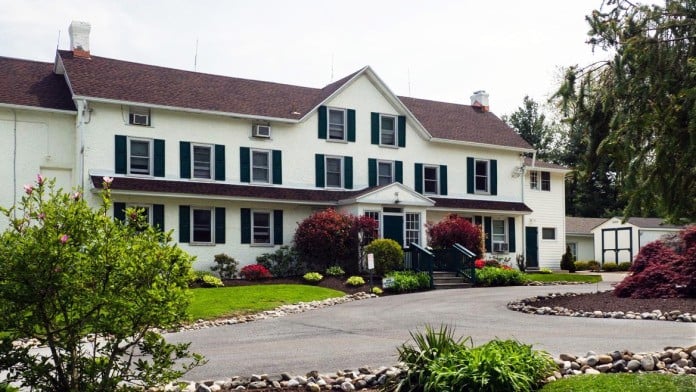
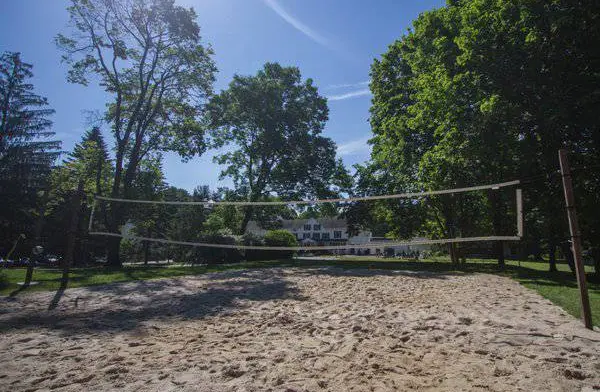
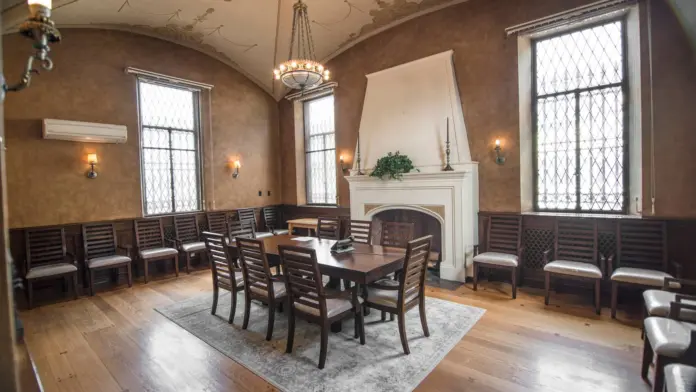
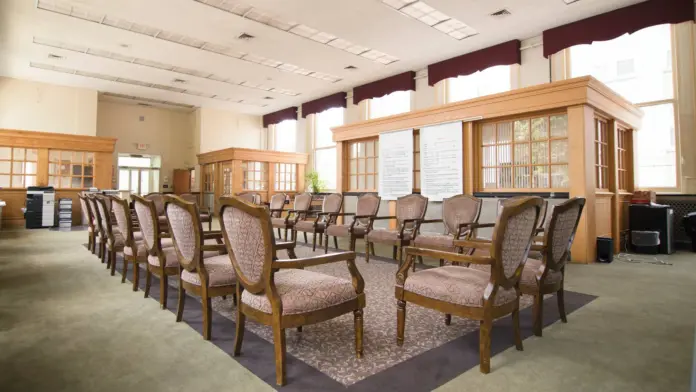
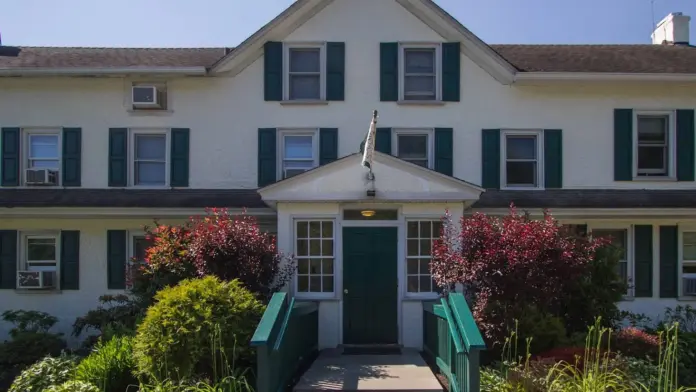
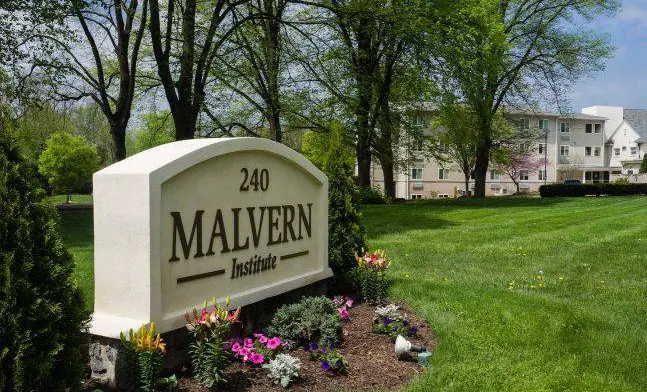
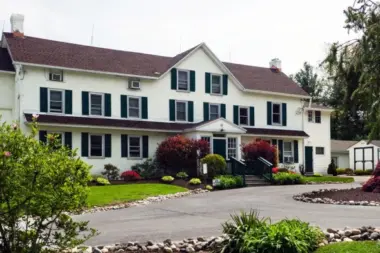
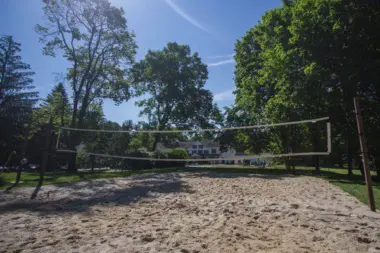
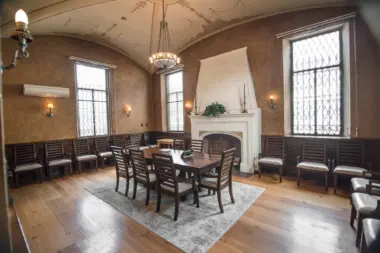
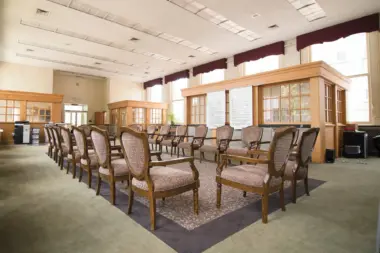
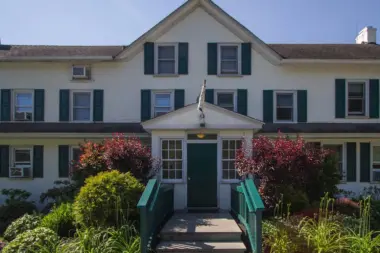
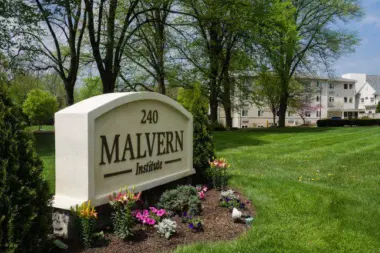
Accepted Insurance
Other Forms of Payment
Private insurance refers to any kind of healthcare coverage that isn't from the state or federal government. This includes individual and family plans offered by an employer or purchased from the Insurance Marketplace. Every plan will have different requirements and out of pocket costs so be sure to get the full details before you start treatment.
Self-pay involves paying for treatment out of your own pocket. You can use savings or credit, get a personal loan, or receive help from family and friends to fund your treatment. If you don't have insurance or your insurance plan doesn't cover a specific program, self-pay can help ensure you still get the care you need.
Financial aid can take many forms. Centers may have grants or scholarships available to clients who meet eligibility requirements. Programs that receive SAMHSA grants may have financial aid available for those who need treatment as well. Grants and scholarships can help you pai for treatment without having to repay.
Military members, veterans, and eligible dependents have access to specific insurance programs that help them get the care they need. TRICARE and VA insurance can help you access low cost or no cost addiction and mental health treatment. Programs that accept military insurance often have targeted treatment focused on the unique challenges military members, veterans, and their families face.
Medicaid is a state based program that helps lower-income individuals and families pay for healthcare. Medicaid covers addiction treatment so those enrolled can use their coverage to pay for rehab. When a program accepts Medicaid the client often pays very little or nothing out of their own pocket.
Addiction Treatments
Levels of Care
Outpatient treatment is a vital component to a successful recovery. For nearly 70 years, the Malvern Institute has been a leader in the field of treating addiction. Outpatient treatment is one of the pillars of The Malvern Model, their continuum of care that features a holistic all-encompassing recovery.
Both detoxification and inpatient care comprise the inpatient phase of the Malvern Model. While in inpatient treatment, patients are able to overcome the physical aspects of the addiction before moving into the phase of recovery that’s arguably the most important: therapy. It’s when patients are in active treatment during the inpatient stage that they learn many of the most important tools that will aid them as they progress to more advanced stages of recovery. Through a variety of psychotherapeutic techniques, patients will learn to identify the underlying causes of their substance abuse problems while developing long-term strategies for addressing those issues, ensuring that each patient can achieve a long, successful recovery.
Clients receiving services from a rehab aftercare program are usually stable and in the maintenance phase of recovery, having completed detox and/or intensive inpatient treatment. Rehab aftercare services can vary widely based on clients' individual and evolving needs, but often include peer coaching, relapse prevention support, 12 step program induction, and medical, mental health, and social service referrals. Individual care plans are typically developed by the client in partnership with their case manager and care team.
12-step programs are addiction recovery models based on Alcoholics Anonymous (AA). A number of substance abuse programs (including some drug and alcohol rehab centers) use the 12 steps as a basis for treatment. Beginning steps involve admitting powerlessness over the addiction and creating a spiritual basis for recovery. Middle steps including making direct amends to those who've been hurt by the addiction, and the final step is to assist others in addiction recovery in the same way. 12-Step offshoots including Narcotics Anonymous (NA), Cocaine Anonymous (CA), Dual Recovery Anonymous (DRA), Sex and Love Addicts Anonymous (SLAA) and Gamblers Anonymous (GA).
Many recovery journeys begin with an intervention, which is why at Malvern Institute they take interventions very seriously. In fact, they have developed their own methodology for preparing and executing interventions. Meant to mirror and complement the Malvern Model of recovery, the Malvern Intervention Model is a valuable resource to those who have a loved one suffering from addiction.
With a partial hospitalization program (PHP), you can participate in intensive rehabilitation treatment with the ability to return home at the end of the day. For a weekly minimum of 20 hours, a partial hospitalization program can take place up to 5 days a week for an average of 90 days. During PHP treatment, you can receive relapse prevention strategies, medication management, individual and group therapy, and other behavioral therapy interventions.
For most forms of chemical dependency, the stage of recovery that immediately follows intervention is detoxification. Each of Malvern Institute’s detoxification programs — from alcohol detox to heroin detox and everything in-between — provides continuous supervision and monitoring due to their nurses, clinical assistants, and technicians available around the clock. Beyond the constant medical support, our detoxification treatment offers patients the benefit of 82 hours of psychiatric care per week.
Treatments
The goal of treatment for alcoholism is abstinence. Those with poor social support, poor motivation, or psychiatric disorders tend to relapse within a few years of treatment. For these people, success is measured by longer periods of abstinence, reduced use of alcohol, better health, and improved social functioning. Recovery and Maintenance are usually based on 12 step programs and AA meetings.
Drug rehab in Pennsylvania is devoted to the treatment of addiction. Levels of care, treatment methods, and settings differ, but the aim of each program is to end drug dependency and empower participants to achieve long-term recovery.
Many of those suffering from addiction also suffer from mental or emotional illnesses like schizophrenia, bipolar disorder, depression, or anxiety disorders. Rehab and other substance abuse facilities treating those with a dual diagnosis or co-occurring disorder administer psychiatric treatment to address the person's mental health issue in addition to drug and alcohol rehabilitation.
Opioid rehabs specialize in supporting those recovering from opioid addiction. They treat those suffering from addiction to illegal opioids like heroin, as well as prescription drugs like oxycodone. These centers typically combine both physical as well as mental and emotional support to help stop addiction. Physical support often includes medical detox and subsequent medical support (including medication), and mental support includes in-depth therapy to address the underlying causes of addiction.
Substance rehabs focus on helping individuals recover from substance abuse, including alcohol and drug addiction (both illegal and prescription drugs). They often include the opportunity to engage in both individual as well as group therapy.
Programs
Adult rehab programs include therapies tailored to each client's specific needs, goals, and recovery progress. They are tailored to the specific challenges adult clients may face, including family and work pressures and commitments. From inpatient and residential treatment to various levels of outpatient services, there are many options available. Some facilities also help adults work through co-occurring conditions, like anxiety, that can accompany addiction.
Recovery is most successful when clients feel accepted and validated by their peers and treatment providers. Facilities that offer LGBTQ-inclusive programming are committed to creating a safe space where everyone can grow and recover without fear of judgment or discrimination. They will have dedicated policies in place to create a safe and supportive environment that fosters free expression.
Rehabs for women provide a safe, nurturing space for female clients to heal. These treatment programs consider the specific obstacles that women can face during recovery and place a special emphasis on mental, social, physical, and reproductive health. They explore how each woman's experience has shaped the trajectory of their substance use, addressing issues such as sexual abuse and past trauma.
Clinical Services
Cognitive Behavioral Therapy (CBT) is a therapy modality that focuses on the relationship between one's thoughts, feelings, and behaviors. It is used to establish and allow for healthy responses to thoughts and feelings (instead of unhealthy responses, like using drugs or alcohol). CBT has been proven effective for recovering addicts of all kinds, and is used to strengthen a patient's own self-awareness and ability to self-regulate. CBT allows individuals to monitor their own emotional state, become more adept at communicating with others, and manage stress without needing to engage in substance abuse.
Group therapy is any therapeutic work that happens in a group (not one-on-one). There are a number of different group therapy modalities, including support groups, experiential therapy, psycho-education, and more. Group therapy involves treatment as well as processing interaction between group members.
In individual therapy, a patient meets one-on-one with a trained psychologist or counselor. Therapy is a pivotal part of effective substance abuse treatment, as it often covers root causes of addiction, including challenges faced by the patient in their social, family, and work/school life.
Research clearly demonstrates that recovery is far more successful and sustainable when loved ones like family members participate in rehab and substance abuse treatment. Genetic factors may be at play when it comes to drug and alcohol addiction, as well as mental health issues. Family dynamics often play a critical role in addiction triggers, and if properly educated, family members can be a strong source of support when it comes to rehabilitation.
Life skills are the mental and social skills that are necessary to navigate day to day life. Addiction diminishes or eliminates these skills, so they must be relearned and practiced during drug rehab treatment in Pennsylvania.
Motivational interviewing in Pennsylvania gives you the opportunity to share your perspective and explore your ideas and motivation for change. Your therapist will walk you through the four steps of engaging, focusing, evoking, and planning to empower you to make any desired changes in your life.
Amenities
-
Yoga Studio
-
Private Rooms
Staff & Accreditations
Staff
Geoff Botak
President
Christian Owen
VP/CFO
Sarah JacobyVP
MA
Michael Salazar, Psy.D.
SeniorVP
Nicole Vandermay
Corporate Director
Accreditations

The Commission on Accreditation of Rehabilitation Facilities (CARF) is a non-profit organization that specifically accredits rehab organizations. Founded in 1966, CARF's, mission is to help service providers like rehab facilities maintain high standards of care.
CARF Accreditation: Yes

State Licenses are permits issued by government agencies that allow rehab organizations to conduct business legally within a certain geographical area. Typically, the kind of program a rehab facility offers, along with its physical location, determines which licenses are required to operate legally.
State License: Pennsylvania
Contact Information
940 West King Road
Malvern, PA 19355
